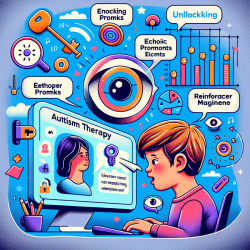In today's digital age, computers have become indispensable in our daily lives. However, the excessive use of electronic devices has led to a condition known as Computer Vision Syndrome (CVS), characterized by a range of symptoms such as eyestrain, dryness, irritation, and more. Recent research has explored the association between CVS and mental health issues like depression and anxiety among Lebanese young adults, highlighting stress as a significant mediator in these relationships.
The Research Findings
The study titled "Association of Computer Vision Syndrome with Depression/Anxiety among Lebanese Young Adults: The Mediating Effect of Stress" provides valuable insights into how CVS is linked to mental health. Conducted between August 2020 and April 2021 with 749 participants, the research revealed that females and individuals with CVS were more likely to experience anxiety and depression.
- Anxiety: Females showed higher levels of anxiety compared to males (Beta = 3.73), and those with CVS had significantly more anxiety than those without (Beta = 3.14).
- Depression: Similarly, females experienced more depression than males (Beta = 2.55), and individuals with CVS were more prone to depression (Beta = 2.61).
The Role of Stress
The study found that stress partially mediated the relationship between CVS and both anxiety and depression. More CVS was associated with increased stress (Beta = 3.05), which in turn was linked to higher levels of anxiety (Beta = 0.70) and depression (Beta = 0.71). These findings suggest that stress plays a crucial role in exacerbating the mental health impacts of CVS.
Implications for Practitioners
For mental health practitioners, these findings underscore the importance of considering CVS as a potential factor in patients presenting with anxiety or depression. Early screening for CVS symptoms can help identify individuals at risk for these mental health issues, allowing for timely intervention.
Moreover, practitioners should be aware of the role stress plays in mediating these associations. Stress management techniques could be integrated into treatment plans for patients with CVS to mitigate its impact on mental health.
Encouraging Further Research
This study serves as a starting point for further exploration into the links between digital device use and mental health. Future research could investigate additional factors that may mediate these relationships, such as the type of electronic devices used or the reasons behind their use.
Additionally, expanding this research to other regions beyond Lebanon could provide a more comprehensive understanding of how cultural and socioeconomic factors influence these associations.
Conclusion
The association between Computer Vision Syndrome and mental health issues like depression and anxiety is a growing concern in our increasingly digital world. By understanding these connections and the mediating role of stress, practitioners can better address the mental health needs of their patients.
To read the original research paper, please follow this link: Association of Computer Vision Syndrome with Depression/Anxiety among Lebanese Young Adults: The Mediating Effect of Stress










